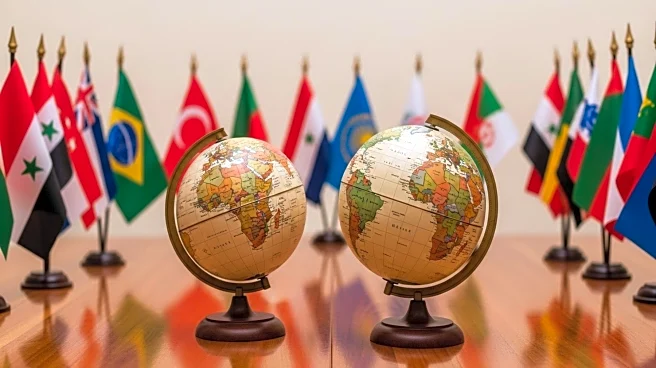What's Happening?
The Department of State has recently undertaken a significant reorganization of its diplomatic team focused on Syria. According to sources, several staff members at the Syria Regional Program (SRP) were informed that their tours were ending as part of this restructuring. This move is reportedly aligned with a broader policy shift towards a more pro-Damascus stance. The reorganization comes at a time when the U.S. is reevaluating its diplomatic strategies in the region, with the special envoy for Syria and the ambassador to Turkey, Thomas Barrack, participating in a flag-raising ceremony at the U.S. ambassador's residence in Damascus for the first time since 2011.
Why It's Important?
This diplomatic shake-up is significant as it reflects a potential change in U.S. foreign policy towards Syria, which could have wide-ranging implications for international relations and regional stability. The decision to end the tours of several diplomats may indicate a shift in priorities or strategies in dealing with the Syrian government. Such changes could affect U.S. influence in the Middle East and alter the dynamics of ongoing conflicts and negotiations. Stakeholders, including international allies and adversaries, will be closely monitoring these developments to gauge the future direction of U.S. policy in the region.
What's Next?
The reorganization of the diplomatic team suggests that further changes in U.S. policy towards Syria may be forthcoming. Observers anticipate potential adjustments in diplomatic engagements and strategies, which could lead to new negotiations or alliances. The impact of these changes on U.S. relations with other countries involved in the Syrian conflict, such as Russia and Turkey, will be crucial. Additionally, the response from the Syrian government and other regional actors will be pivotal in shaping the future of U.S. involvement in Syria.
Beyond the Headlines
The diplomatic reshuffle may also have deeper implications for U.S. foreign policy, including ethical considerations regarding engagement with regimes accused of human rights violations. The shift towards a pro-Damascus stance could spark debates within the U.S. about the moral and strategic aspects of such a policy. Long-term, this could influence the U.S.'s role in promoting democracy and human rights globally.












